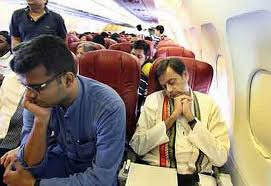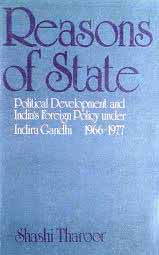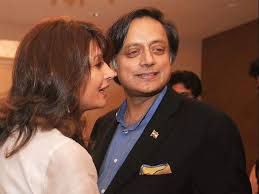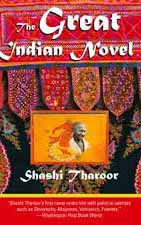The word is poised to enter the Indish vocabulary, to mean ‘one who tweets, incorrigibly, almost with impunity’, in the manner of the flamboyant Shashi Tharoor. ‘Twittharoor’ scores over the already existing ‘twitterer’ in that it is evocative, pregnant with meaning, replete with history.


Tharoor’s tweet career shot into prominence rather controversially when ‘cattle class’ is how he dubbed Indian Airlines’ economy class. He made it clear that he had condescended to travel by it in ‘solidarity with all our holy cows’; but to which ‘holy cows’ he was referring always remained unclear. Did he mean to graze the Congress, which was once a ‘cow’? One could say it still is, considering how well its party persons are milking it: so was Tharoor having a dig at them? Or maybe he was thinking of that ubiquitous bunch of vagrants in our streets – and, by extension, those among us who similarly hang out endlessly in open spaces or travel daily by public buses….
If Tharoor only meant to send out a witty tweet, he must have amused his fans in the growing aspirational class across the nation, ever on the lookout for the antitheses of Lalus and Mayawatis. But what was humour for his friends indeed provoked furore among his foes. Furore came particularly when the minister targeted two ‘holy cows’ from our pantheon: Gandhi and Nehru. Didn’t he say people should be working on Gandhi Jayanti rather than staying at home? Far from hurting die-hard Gandhians it severely wounded commuting ‘cows’, infinitely worried about losing a comfy holiday!
 Close on its heels came criticism of Nehruvian foreign policy: here the feisty minister touched upon India’s use of force in Goa, as did one of India’s latter-day unholy cows, gutsy Arundhati Roy, who in sympathy with the Maoists blasted the country’s quickness in annexing lands and putting down popular movements. As the author of a scholarly study on Indian foreign policy, titled Reasons of State, Tharoor probably had many a reason for he stated; but then, cowed down by political bulls, he soon retracted his position. Whether the larger point went rather unnoticed or was deliberately underplayed is not for us to debate now (that can appropriately wait until December 2011); the fact is that argument did not catapult to the headlines as did his critical tweet lines on the newly-tightened visa norms: our minister had been left wondering whether they would actually ‘protect’ security or just make India a ‘less welcoming’ destination.
Close on its heels came criticism of Nehruvian foreign policy: here the feisty minister touched upon India’s use of force in Goa, as did one of India’s latter-day unholy cows, gutsy Arundhati Roy, who in sympathy with the Maoists blasted the country’s quickness in annexing lands and putting down popular movements. As the author of a scholarly study on Indian foreign policy, titled Reasons of State, Tharoor probably had many a reason for he stated; but then, cowed down by political bulls, he soon retracted his position. Whether the larger point went rather unnoticed or was deliberately underplayed is not for us to debate now (that can appropriately wait until December 2011); the fact is that argument did not catapult to the headlines as did his critical tweet lines on the newly-tightened visa norms: our minister had been left wondering whether they would actually ‘protect’ security or just make India a ‘less welcoming’ destination.

Here Tharoor came out as a champion of foreigners – mind you, not simply an ‘interlocutor’ but truly their ‘mediator’! Some months ago he had effectively split hairs but this time around, by his relaxed approach, external affairs flowed seamlessly into his personal affairs – and alas, Pushkar, his femme fatale, true to her name, pushed herself, so hard that ‘external’ and ‘personal’ turned ‘fatal’.

There was a time in the 1980s when I used to lap up the then international civil servant Tharoor’s monthly dispatches for our very own Gentleman magazine. Now it is the Opposition that laps up the fodder for controversy that he provides through his freewheeling tweets. But aside the fact that Tharoor’s spat with a sports honcho actually opened a can of worms, it is my hunch that he had no prior inkling of any sinister plot in the gentleman’s game. The IPL was only a side-show for the wordsmith Tharoor; all that he wanted was to quickly hit on a plot for a promising thriller.
The cricket competition controversy had all the makings of an irresistible reality show; the suave minister crafted the plot by personally creating the moment. Its prospective morphing into a creative work will be a classic case of art imitating life. In it its creator will have the last laugh: besides showcasing his flair for affairs of every hue, he will prove that his tweet, even if indiscreet, is creative. He who quit his UN job will show that he is no quitter; he who frittered away his MEA position will always on twitter stay. He who once lost his bid for UNO’s top post may one day become the secretary-general of an UTO, short for ‘United Twitters Organization’.

The only story that will remain to be told is of how this diplomat-turned-politician could be so un-diplomatic and politically incorrect. But then, in the tradition of The Great Indian Novel, that ironic adaptation of the Mahabharata that Tharoor penned from a 20th century viewpoint, he can well be expected to do so himself, pioneering a literary genre that may well be called the maha-chotta Bharatiya ‘Twitter Novel’! That will be the crowning glory for India’s foremost twittharoor.
(Herald, 17 May 2010)